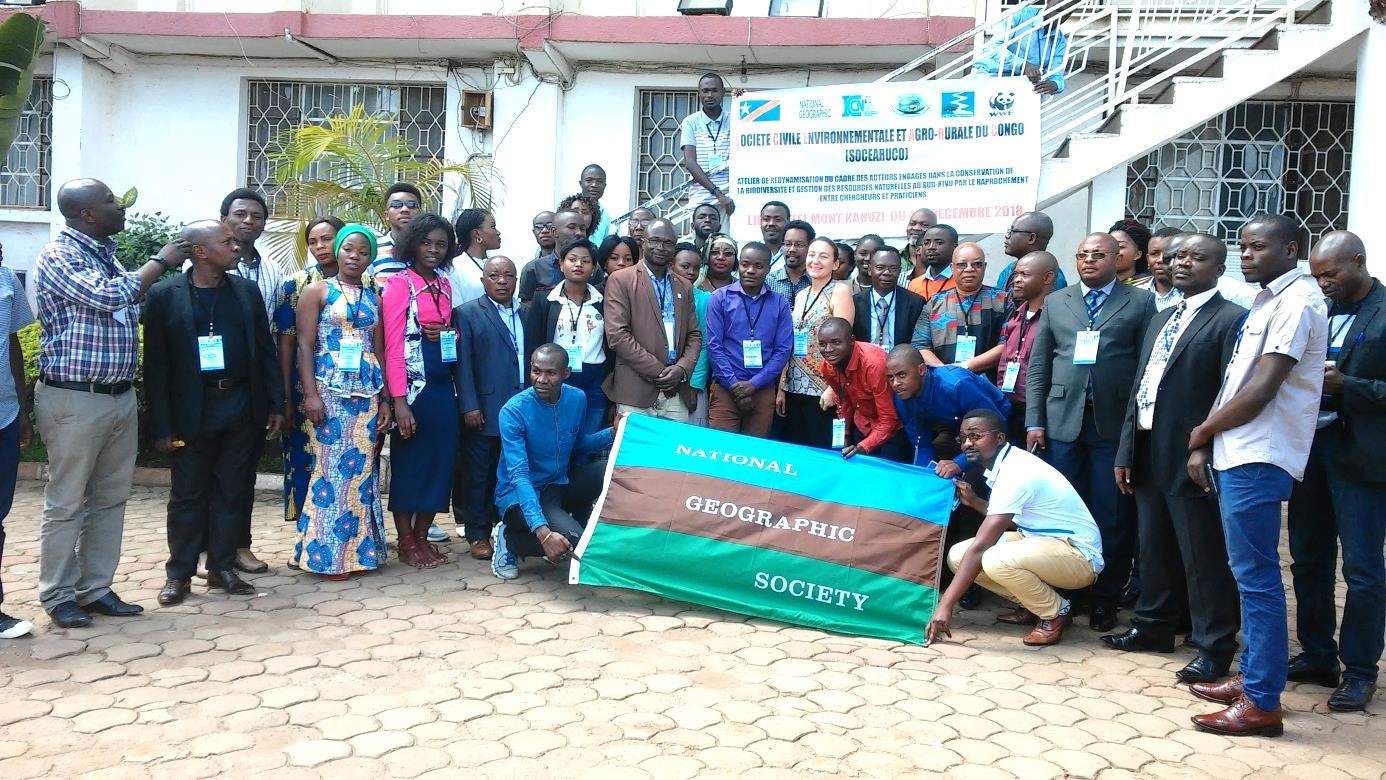Last month a workshop was held to revitalize the framework of the actors engaged in the conservation of biodiversity and management of natural resources in South Kivu in Democratic Republic of Congo DRC, aiming at bringing together between researchers and practitioners. Under the financial support of National Geographic Society and WWF, the workshop brought together environmental stakeholders in South Kivu, including the provincial ministry of the environment, the Governor’s Environmental Adviser, Congolese Institute for the Conservation of Nature (PNKB and RNI), a group of international and local conservation NGOs, and selected Universities and Institutes working in the conservation of biodiversity. It aimed to promote collaboration between scientists and practitioners engaged in the conservation of biodiversity in eastern DRC, drawing on their complementary skills and knowledge. The purpose of this dialogue was to identify gaps, research priorities, and opportunities for collaboration, funding opportunities and advocacy capacity building supported by scientific research arguments. The workshop also looked at the value of cultural services and other ecosystem services that can help decision-makers to make the choices that are needed to conserve biodiversity and their habitat.
The workshop was attended by nearly 45 actors from government institutions and partners, and five local NGOs and five universities and academic institutions based in Bukavu and surrounding areas that were identified and selected through a consultation process launched since February 2018. Academic institutions were represented by students engaged or interested in biodiversity conservation research and their mentors.
The work of this workshop set up a framework for collaboration between biodiversity conservation stakeholders, researchers and practitioners in the field of basic and applied research for the conservation and maintenance of ecosystems.
This collaborative framework engages in advocacy with policy makers for the implementation of the existing legal and regulatory framework that promotes biodiversity research and conservation (and the improvement of the obsolete legal framework) for the maintenance of fragile ecosystems and habitats as well as flagship species in the region. This advocacy will also be concretized through sec toral thematic meetings with the provincial specialized services including the Provincial Consultative Council of Forests (CCPF), the Provincial Coordination of the Environment in the implementation of the Provincial Program for Forests, Waters and Biodiversity Environment (PPEFB). ), the Congolese Institute for the Conservation of Nature (ICCN), etc.

In view of the foregoing and considering the relevance of debates and deliberations, the actors undertake to create a framework for exchange, information and mutual capacity-building on the conservation of biodiversity and management of natural resources and the value of ecosystem services (ES) in South Kivu on the gaps of research priorities, opportunities for collaboration, funding and capacity building on the valorization of cultural services and other ecosystem services. The participants expressed the wish to reinforce this framework and its functionality in order to maintain close collaboration in the aforementioned themes.
The actors undertake in the end to guide the choice of research topics for young students by university institution and host institution, without restricting the initiative of students, giving them practical advice, especially for those who wish address the concrete and relevant problems of biodiversity conservation in the DRC in general and in South Kivu in particular.
By Josue ARUNA
Congo Basin Conservation Society CBCS-Network
